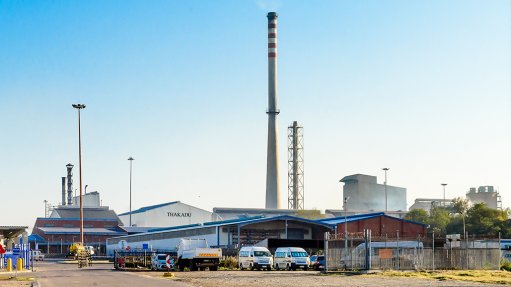
Thakadu's nickel sulphate refinery
High-purity battery raw materials supplier Thakadu has started production at its $20-million nickel sulphate refinery in the North West province of South Africa.
This puts Africa on the map as a supplier of battery-grade product to the growing global market for electric mobility and stationary energy storage.
The company is targeting production at a rate of 16 000 t/y by year-end and operations will ramp up to steady state production of 25 000 t/y thereafter.
Thakadu’s refinery is the first in a series of projects that will see the company become a multi-asset producer of battery raw materials.
The company started construction on the nickel sulphate refinery in August 2018.
COO Danie Smit explains in a release that the new nickel sulphate refinery uses proprietary process technology to purify crude nickel sulphate extracted from a platinum group metals concentrate that would otherwise be sold as a lower-value product.
Thakadu will refine crude nickel sulphate feed from its long-term supply agreement with precious metals miner Sibanye-Stillwater and other supplemental feed sources.
“We see enormous value in having a battery materials platform with a producing asset and we are pursuing synergistic merger and acquisition opportunities to leverage that into a clean and reliable source of battery materials for the global market,” comments CEO Ruli Diseko.
Nickel demand from the automotive sector is growing rapidly, with electric mobility expected to represent the single-largest growth sector for nickel demand over the next 20 years.
According to commodity research firm Roskill, nickel sulphate consumption has grown at 20% a year since 2014 and that has primarily been driven by the rapidly growing electric vehicle battery sector.
The research firm expects to see demand grow from between 90 000 t and 100 000 t of contained nickel in 2020 to 2.6-million tonnes by 2040.
“We are excited about leading Africa’s contribution to a cleaner planet. We believe that investing in value addition of battery raw materials at source is not only developmental but creates logistics and supply efficiencies that are a net positive for a greener future,” notes Diseko.